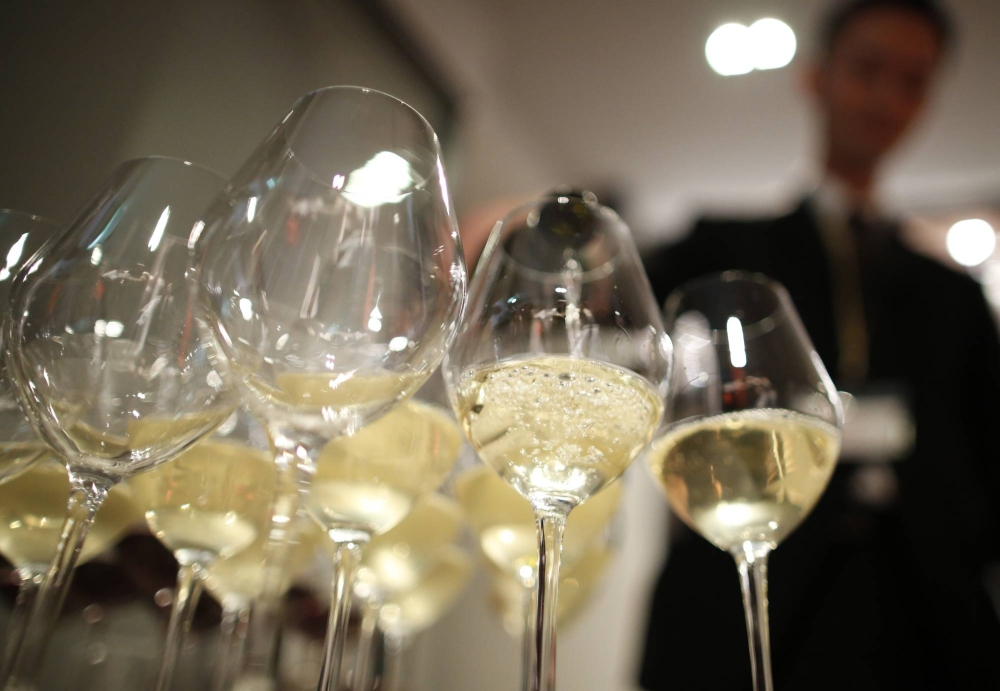Spend enough time drinking wine in Tokyo, whether it be in a hip natural wine bar, at a regional wine event or simply at a home party with fellow wine lovers, and you will invariably meet someone who proudly proclaims, “I’m a wine expert!” but then goes on to say that they are, in fact, a doctor or something, rather than a sommelier.
In the early 2000s, certified sommeliers in Japan numbered around 7,000. As of 2023, however, the Japan Sommelier Association (JSA) lists just shy of 40,000 such accredited specialists in the country, with hundreds more joining the ranks each year.
It seemed odd to me at first that so many “experts” I bumped into clearly didn’t work in the wine industry and seemed to merely enjoy drinking the stuff. But I would simply assume I put too much stock in the word, sip my wine and mumble something about being more of a “nomulier” myself — a common Japanese wine gag blending “sommelier” and the word “nomu” (to drink).
But then, during my own wine studies, I discovered that the JSA offers a qualification simply called “Wine Expert,” and it all began to make sense.
Class in session
Japan is a fantastic place to study wine. You’ve got a surprisingly good selection of the world’s top wines at your fingertips — not just in specialized wine shops or high-end restaurants and wine bars, but also in supermarkets and department stores in major cities.
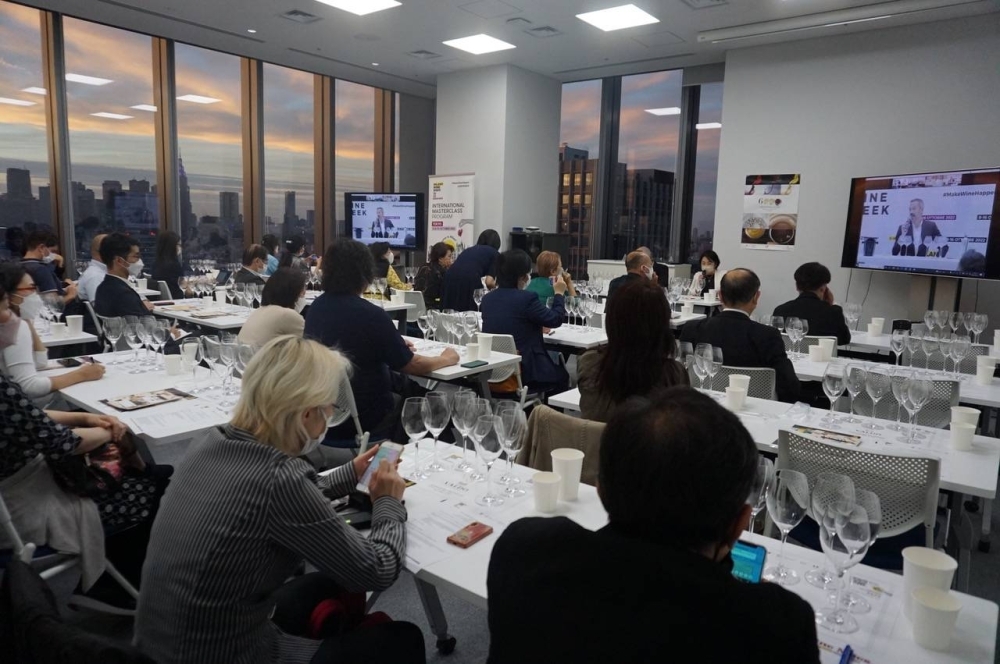
Japan’s number of accredited sommeliers has grown from 7,000 in the early 2000s to nearly 40,000 today.
| COURTESY OF CAPLAN WINE ACADEMY
On top of this, Japan got into natural wines long before the current global boom, and there is a well-established and lively natural-wine scene to explore here. Japanese wine, too, is having a bit of a moment right now, and there are plenty of cellar doors worth visiting among the literal hundreds of wineries dotted about the country.
And then, when you decide to become a wine expert yourself, there are some excellent wine schools offering a myriad of formal qualifications obtainable in both Japanese and English.
The largest of these is Academie du Vin, a prestigious wine school founded in Paris in the 1970s followed by the first Japan branch in 1987. Caplan Wine Academy and L’Ecole du Vin also offer courses ranging from casual day classes to advanced qualifications. The two main organizations with certified exams that can be taken in Japan are the JSA and the Wine & Spirits Education Trust (WSET).
Over the past couple of years, I’ve been working my own way through the WSET awards in wine, and I’m now tackling its Level 4 diploma. Along the way, I’ve realized that studying wine is an extremely popular pastime in Japan. What has surprised me, though, is the number of students seeking professional qualifications without a professional need to do so.
No doubt part of that comes down to demographics. Studying wine is not cheap, both the wines and course fees can soon add up, with the WSET diploma costing at least ¥720,000, before you even start to factor in the wines you need to buy. Advanced wine students here tend to be moneyed, middle-aged and can afford it, even if they only study because wine is something they are passionate about. But surely there is more to it.
Cultural cues
A Japanese friend once told me that collecting various licenses is common in Japan. He has 10 or so himself and put it down to something that was deeply ingrained in him as a child going through Japan’s exam-driven education system. If there’s a specific skill that needs to be mastered, Japanese have a strong desire to have it formally recognized. So why would wine enthusiasts be any different?
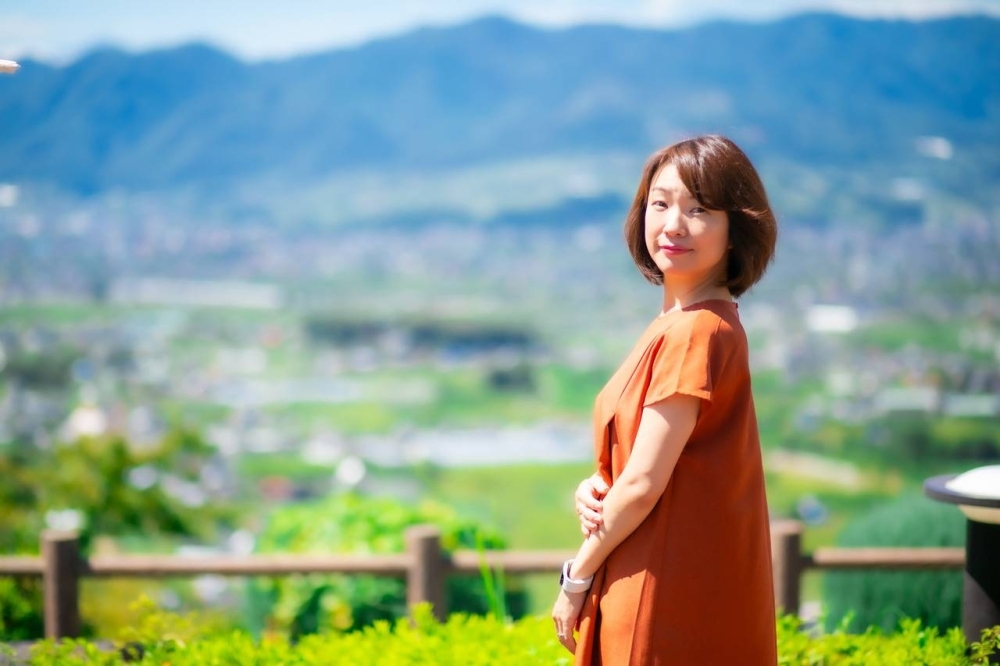
Wine writer and Academie du Vin instructor Yoko Obara suggests Japan’s obsession with testing and exams during school years carries through to the preference for adult wine aficionados to seek certifications.
| COURTESY OF YOKO OBARA
Yoko Obara, a noted wine writer, WSET diploma graduate and Academie du Vin instructor, agrees this may be behind why so many people study for wine qualifications in Japan.
“That’s basically true, even for me,” she says. “I’m not sure why other people collect qualifications, but my motivation is to gain the basic and thorough knowledge about a field in which I have an interest. That is, if you want to say ‘I know about wine’ — or even ‘I know about programming’ or ‘I know about handling hazardous material’ — then you need to learn about them systematically, not only partially.
“For example, even if you know all there is to know about the crus of Burgundy, that is not enough to get a JSA certification,” Obara continues. “You also need to know everything about Australian wine (and elsewhere), too. In my opinion, gaining a certificate is a milestone. When you pass an exam, it means you are allowed to say ‘I know about this’ officially.”
Eiji Nakamura, an executive at Caplan Wine Academy, had something similar to say.
“Most of our students want to learn wine systematically, and want their knowledge to be certified by internationally recognized organizations. Many of them have high goals, with a long-term view of their wine-learning path: some of them eventually aim at obtaining the WSET Diploma, the Master Sommelier or the Master of Wine certification.”
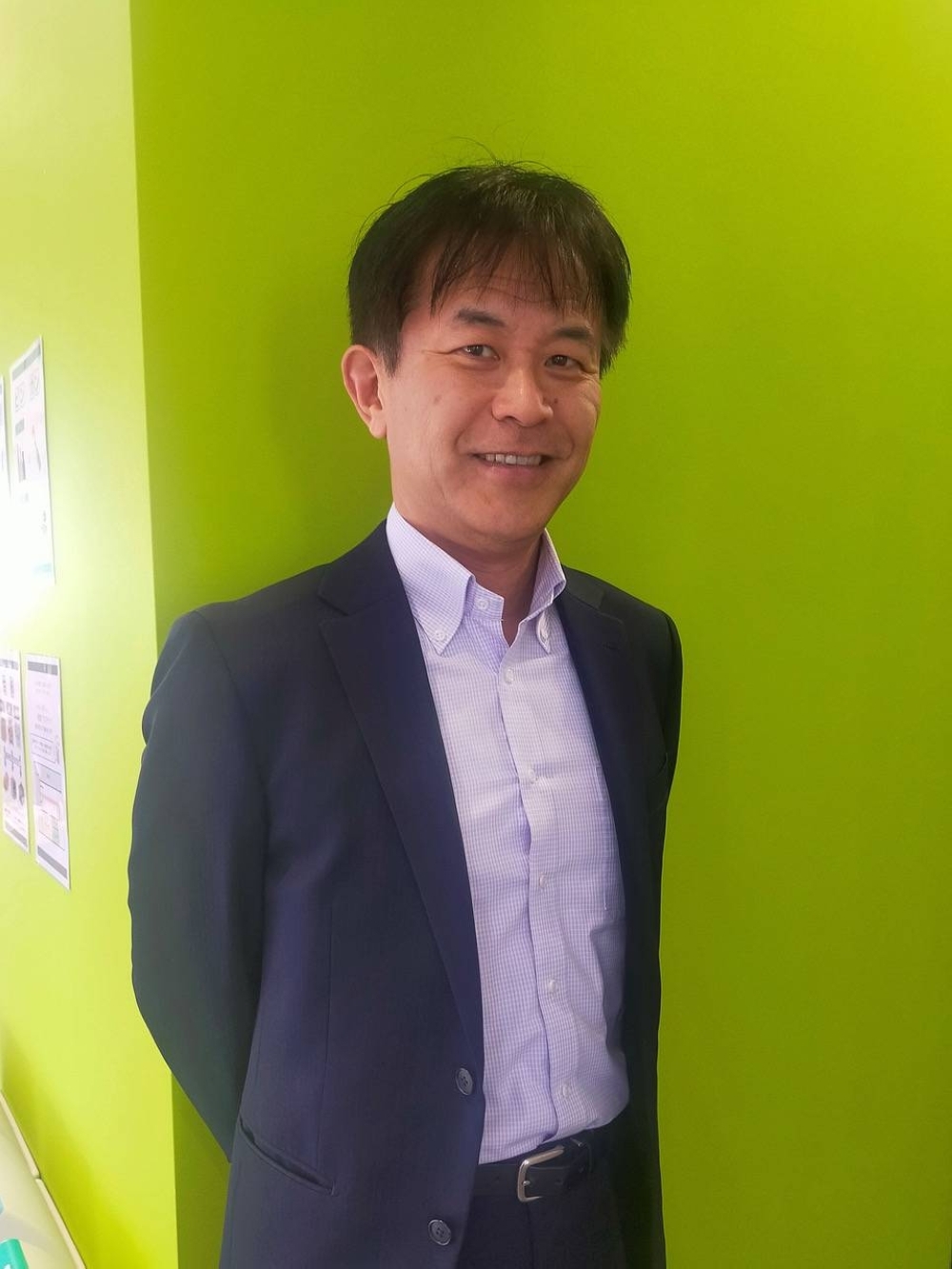
Caplan Wine Academy executive Eiji Nakamura says half of the organization’s students have specific goals to attain certain levels of authority in wine.
| COURTESY OF EIJI NAKAMURA
Like all the schools mentioned here Caplan has some excellent casual wine courses alongside its certified courses. But Nakamura says that more than half of its 2,800 students “are studying to obtain a certain level of authority and a qualification.” In the last 10 years, he says, “there has been an increase in people wanting to learn about wine and be certified for their knowledge, even when they are not professionals.”
Naofumi Kobayashi, a spokesperson for Academie du Vin, expanded on this and suggests a reason for the increased popularity of wine courses here may be that “wine used to be perceived as complex, and there was a belief that one needed extensive knowledge to enjoy it.” As wine has become more accessible it’s now seen as “both a casual and stylish drink, increasing interest among the public.” But once again he agrees that “the Japanese desire to formalize learning through qualifications has played a significant role” in the numbers of students aiming for the higher qualifications.
For Japanese speakers who decide to move beyond casual wine courses, the JSA’s Wine Expert certificate is clearly a popular first choice, more so than the WSET awards in wine. Obara suggests this may be because the qualifications offered by the WSET are still less known in the Japanese market, as most people equate a wine professional with the title “sommelier.”
The JSA, which is Japan’s largest organization of professional sommeliers, does not offer courses itself but encourages self-study using its textbooks and holds exams for its qualifications a couple of times a year. Apart from the Wine Expert exams, which can be taken by anyone over the age of 20, the JSA also offers its Sommelier certifications, which are only available to people working in the wine industry.
Holding both Wine Expert and WSET Award qualifications is also increasingly common, especially amongst hobbyists who are unable to move onto the JSA’s sommelier exam.
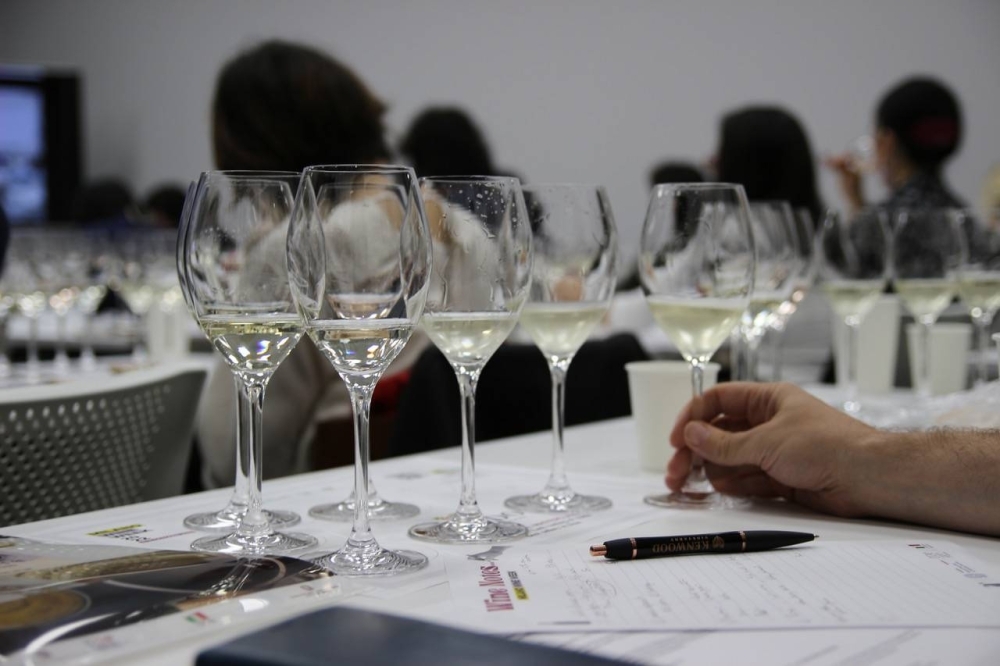
Tokyo is home to several accredited wine schools offering programs catered to the casual hobbyist, the industry professional and everyone in between.
| COURTESY OF CAPLAN WINE ACADEMY
Obara says her students often tell her gaining a JSA certification is satisfying but that studying for the exams can kind of feel like “just cramming and remembering things,” and that the WSET’s different approach to studying wine appeals to them.
“The JSA programs are excellent,” she says. “But they have a lot of details to remember that may be too much for people outside the wine industry. Casual wine lovers don’t need to remember all 61 classed growths in Bordeaux, or all the grand crus in Burgundy, which is required by the JSA. If you’re not a sommelier who is expected to memorize everything about wine, you can simply Google it.
“But, as an educator,” Obara says, “I always tell students that Japan is the ideal place to learn about wine because you can gain both JSA and WSET qualifications. If you combine these two methods, you will obtain a rigid and solid understanding of wine.”
You will also taste some excellent wine, make some amusing drinking buddies and have a great deal of fun becoming an expert in wine yourself — no matter how you choose to define that.
Wine & Spirit Education Trust
An awarding body and registered charity based in London and devoted to the development and delivery of globally recognized qualifications in wine, spirits, sake and beer, for enthusiasts and professionals alike. Awards range from Level 1 (one-day introduction to wine) to Level 4 (expert-level qualification requiring at least 18 months of study. For more information, visit wsetglobal.com/.
The Japan Sommelier Association
A professional organization of sommeliers, which offers Wine Expert and Sommelier certification exams. Does not hold classes but publishes a textbook each year on March 1 for self-study or guided study within a school offering exam preparation courses. Since 2023, the Wine Expert exam is also offered in English. For more information, visit sommelier.jp/.
Academie du Vin
Located in Tokyo (Aoyama and Ginza) and Osaka, with a Nagoya school coming soon. Mostly Japanese but a few courses are available in English. Over 150 courses offered annually, broadly categorized into three main types: systematic learning as a hobby, obtaining qualifications (including the WSET Award courses Levels 1 to 3) and courses focusing on specific regions, producers or topics. Free trial lessons available; for more information, visit adv.gr.jp/.
Caplan Wine Academy
Located in Tokyo, Osaka and Nagoya. Mostly Japanese but a sizable selection of courses in English. Japan’s largest certified provider of WSET courses (both wine and sake) and the only one offering the WSET Diploma in Wine exam. For more information, visit caplan.jp/wine/index.html.
L’Ecole du Vin
Popular casual wine school located in Tokyo (Shibuya and Shinjuku). Offers a variety of courses from hobby classes on a variety of subjects (wine, sake and cheese), JSA exam preparation courses and WSET Award courses Levels 1 to 3. Japanese only. Free trial lessons available; for more information, visit duvin.jp/.

